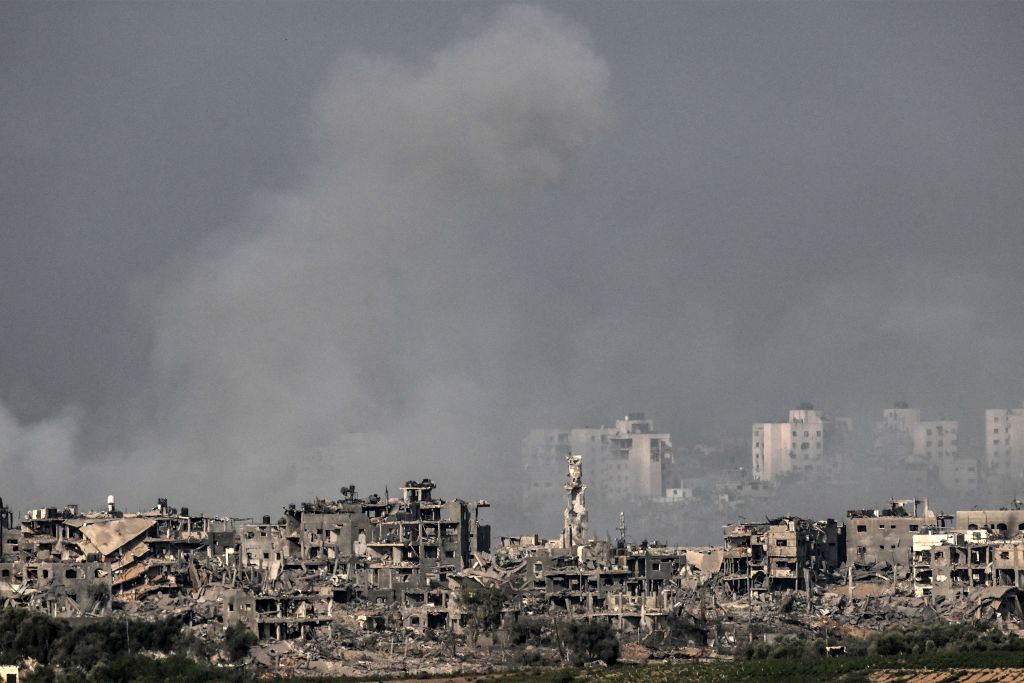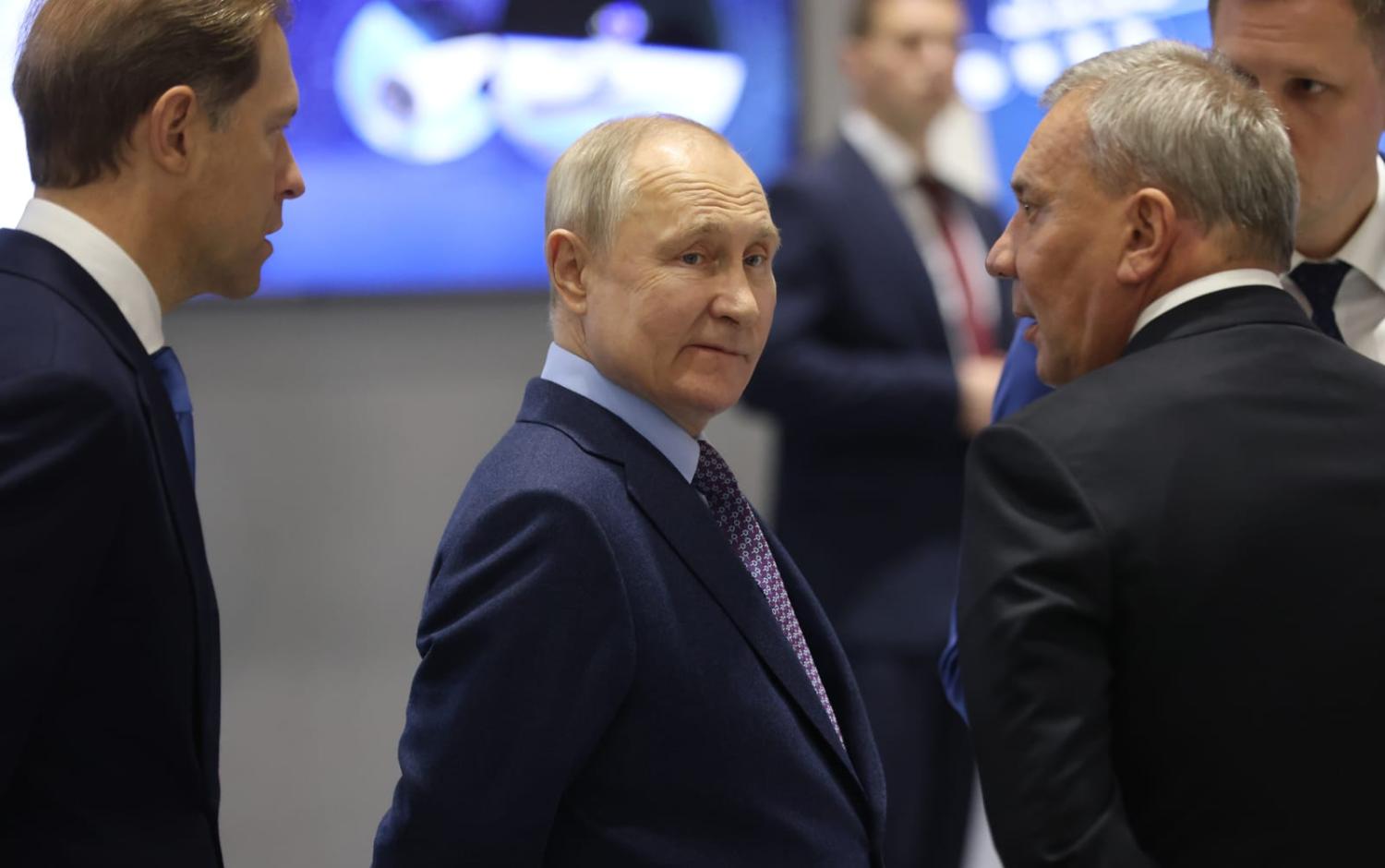For Russia, the Gaza conflict provides an opportunity – but one that could prove to have a sting in the tail.
First, the war in Gaza is already distracting global political attention – and the media spotlight – away from Russia’s war in Ukraine. This can only be to Moscow’s advantage. And it’s bad news for Kyiv, heavily dependent as it is on Western military and economic support.
Moscow hopes that the Middle East crisis will draw time, energy and resources away from Ukraine.
This plays to Russian President Vladimir Putin’s advantage, since he’s playing a long game in Ukraine, counting on outlasting the West. Indeed, preoccupation with Israel-Gaza seriously jeopardises political support in the United States for the continued substantial flows of money and weapons to Ukraine critical to Kyiv’s ongoing struggle against Russian aggression.
Even before the brutal 7 October Hamas attack on Israel, support for Ukraine among increasingly isolationist Republicans in Congress was flagging.
The Biden administration has tried to circumvent this political problem by combining support for Israel and Ukraine within a single funding package – but that seems unlikely to succeed. And already, there are reports suggesting that US munitions initially earmarked for dispatch to Ukraine have been redirected to Israel.
Second, the Gaza crisis offers an opportunity for Moscow to enhance its standing and reassert its influence in the region.
Russia has long been a player in the Middle East, dating back to Soviet times. Traditionally, it enjoyed close ties with secular Arab countries (notably, Syria, Iraq, Egypt), but in more recent times, Moscow’s ties with the Gulf States and Saudi Arabia have also expanded, focused around oil market cooperation.
Relations with Israel have also strengthened markedly since the demise of the USSR. These have been underpinned by the sizeable Russian-speaking diaspora that has settled in Israel in the post-Soviet era – now some 15 per cent of its population – and supported by a close personal chemistry between Putin and Israeli Prime Minister Benjamin Netanyahu.
But these ties have cooled somewhat since Russia’s invasion of Ukraine last year, while Moscow’s long-standing involvement in the Syria conflict has also complicated ties.

Russia has long been active in multilateral diplomatic efforts to address the Israel-Palestine issue, including as a member of the Quartet (comprising the United States, Russia, the United Nations and the European Union). It has maintained close ties with the Palestinians, including frequently hosting senior Hamas delegations in Moscow since 2006.
Significantly, over recent years, but especially since its invasion of Ukraine, Moscow’s historically vexed relationship with Iran has improved markedly and expanded, including crucial Iranian supplies of military drones to Russia.
In responding to Hamas’ deadly assault on Israel, and the ensuing Israeli retaliatory strikes on Gaza, Russia has sought to portray itself as the voice of calm and restraint, and the power with strong links with all regional countries. Indeed, Moscow has tried to cast itself as a potential mediator; Putin has suggested that because of Russia’s friendly ties with both Israel and the Palestinians, “no-one could suspect us of playing up to one party”. Moscow has meantime sought to discredit the United States, blaming the crisis on failed US diplomacy and the consequence of Washington allegedly stoking tensions in the region.
But in reality, Russia’s approach to the crisis has shown an increasingly pro-Palestinian tilt. And its pretensions to act as neutral go-between seem less credible. Moreover, on 26 October, Russia hosted a visit by a senior Hamas delegation in Moscow – a decision deplored by Israel, but defended by Moscow as consistent with its approach to maintain contacts with all parties to the conflict. Iranian Deputy Foreign Minister Ali Bagheri Kani visited Moscow at the same time, meeting both his Russian counterpart Mikhail Bogdanov and the Hamas delegation.
While Russia has condemned the Hamas attack and called for the release of Israeli hostages, it’s striking that despite their close personal relationship, Putin did not telephone Netanyahu to convey condolences until ten days after the attack, and then only as part of a flurry of conversations with regional leaders, including Egypt, Iran and Syria.
By contrast, both Putin and Russia’s Foreign Minister Sergey Lavrov have been increasingly harsh in their criticism of the Israeli military response in Gaza. While acknowledging Israel’s right to self-defence, Putin has warned of the unacceptable level of civilian Palestinian casualties involved in Israel’s military assault on Gaza, characterising it as disproportionate, in inflicting collective punishment on the population of Gaza for Hamas’ actions. Lavrov has described the Israeli retaliatory strikes as contravening international humanitarian law. Such protestations will ring hollow for many observers, given Russia’s documented extensive breaches of human rights in its ongoing war against Ukraine.
Moscow won’t want relations with Israel to worsen further, given the strong underlying diaspora ties, and its need for continued Israeli cooperation to manage the security situation in Syria. But Moscow is clearly aligning itself with mainstream Arab opinion on the crisis.
It’s worth noting too that Russia will reap benefits from the economic consequences of escalating tensions and conflict in the Middle East due to upward pressure on oil and gas prices.
Moscow will probably see its interests served by tensions and conflict continuing to roil the Levant. It calculates this will tie up US–Western attention and resources, diverting it away from Moscow’s main priority, Ukraine.
Provided, though, the Gaza conflict remains localised, and doesn’t become an all-out regional war.
A wider war, drawing in Iran and the United States, would have negative security implications for Russia – not least domestically. At home, it might inflame tensions among Russia’s own Muslim population, especially in the already-troubled North Caucasus. The risk of this became clear on 30 October, with the outbreak of anti-semitic violence in Makhachkala, the capital of Dagestan. This incident clearly caught Moscow by surprise. It provided a timely reminder of the security risks Moscow faces with Muslim extremists and again raised the spectre of past violence in Chechnya.
So, while Moscow may regard renewed conflict between Israel and the Palestinians as a net strategic plus for its overall interests – for now – the volatile situation in the Middle East might yet come back to bite Russia in unwelcome ways.

